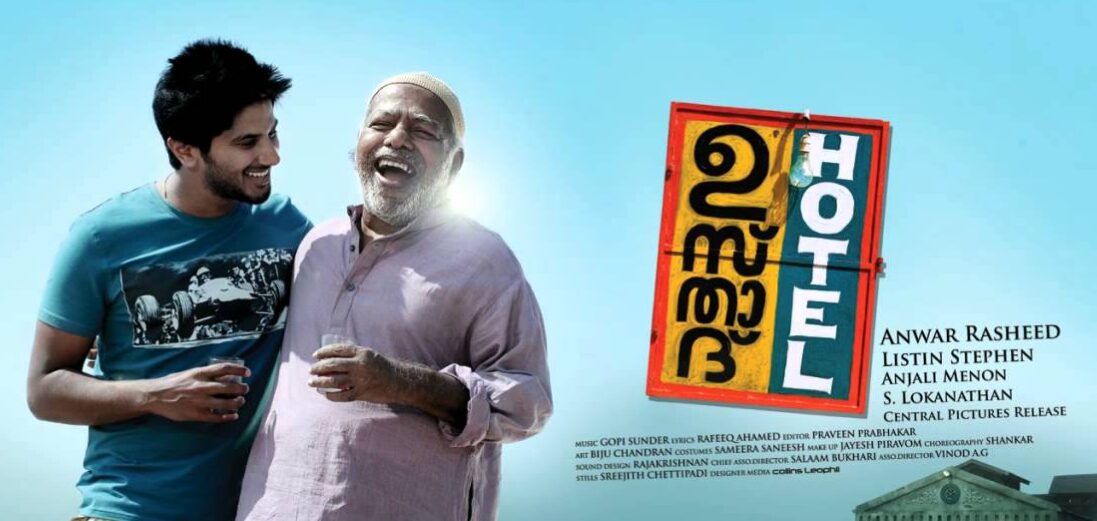The mere mention of “Ustad Hotel” conjures images of heartwarming stories, delectable Malabar cuisine, and the undeniable charm of Kozhikode. While the film is a fictional masterpiece, its soul is deeply rooted in the cultural and culinary tapestry of this beautiful Kerala city.
The Essence of Kozhikode on Screen
“Ustad Hotel” isn’t just a movie about food; it’s a tender portrayal of heritage, passion, and the simple joys of life. Faizi, a young man with grand culinary dreams, is pulled back to his roots in Kozhikode, specifically to his grandfather Karim Ikka’s humble restaurant. It’s here that he truly begins to understand that the secret ingredient to great food isn’t just skill, but love, tradition, and a connection to one’s origins. The film beautifully captures the laid-back yet vibrant atmosphere of Kozhikode. From the bustling streets to the serene beaches, the cinematography lovingly frames the city as a character in itself. You can almost smell the sea breeze and the spices wafting from Karim Ikka’s kitchen as you watch.
Malabar Cuisine: The Heartbeat of “Ustad Hotel”
No discussion of “Ustad Hotel” and Kozhikode is complete without diving into the food. The film is a gastronomic delight, showcasing the rich and diverse flavors of Malabar cuisine. From the iconic Kozhikode Biryani to the delicate porottas and spicy fish curries, every dish is prepared with an almost reverential quality. Karim Ikka’s philosophy – “Anyone can cook, but only a few can cook with love” resonates deeply with the culinary traditions of Kozhikode. This city is renowned for its unique blend of Arabian, European, and traditional Kerala influences, resulting in dishes that are both comforting and exhilarating. The use of fresh, local ingredients, traditional cooking methods, and a generous sprinkle of passion are what make Kozhikode’s food truly special, and “Ustad Hotel” perfectly encapsulates this spirit.
Bringing Kozhikode to Life: Shooting Locations and Authenticity
One of the greatest strengths of “Ustad Hotel” is its commitment to showcasing genuine Kozhikode. While some interior shots may have been filmed on sets, a significant portion of the movie, particularly scenes depicting Karim Ikka’s restaurant and the surrounding environs, were indeed filmed in and around Kozhikode (Calicut) itself. The iconic restaurant, “Ustad Hotel, Karim Ikka’s Mess,” was largely constructed as a set, but its design was heavily inspired by the traditional eateries and architectural styles found in the coastal city. The bustling market scenes, the serene beach sequences, and the general street life depicted in the film are all authentic glimpses of Kozhikode. This deliberate choice to film on location adds an incredible layer of realism and heart to the movie. It allows viewers to feel truly immersed in the city’s unique rhythm and visual aesthetic, making Kozhikode almost a character in its own right.
Beyond the Plate: A Message of Connection
Ultimately, “Ustad Hotel” uses food as a metaphor for life’s deeper connections. It’s about family, community, giving back, and finding joy in simplicity. Karim Ikka’s kitchen becomes a hub where stories are shared, relationships are mended, and the true taste of life is savored. This sense of community and warmth, so beautifully portrayed in the film, is something you’ll experience firsthand when you visit Kozhikode – a city where hospitality is as flavorful as its cuisine, and every corner holds a story waiting to be discovered.
So, if you’ve been inspired by “Ustad Hotel” and its ode to authentic flavors and human connection, a trip to Kozhikode should definitely be on your menu. It’s a place where every meal tells a story, and the cinematic magic of Karim Ikka’s philosophy feels very much alive.

